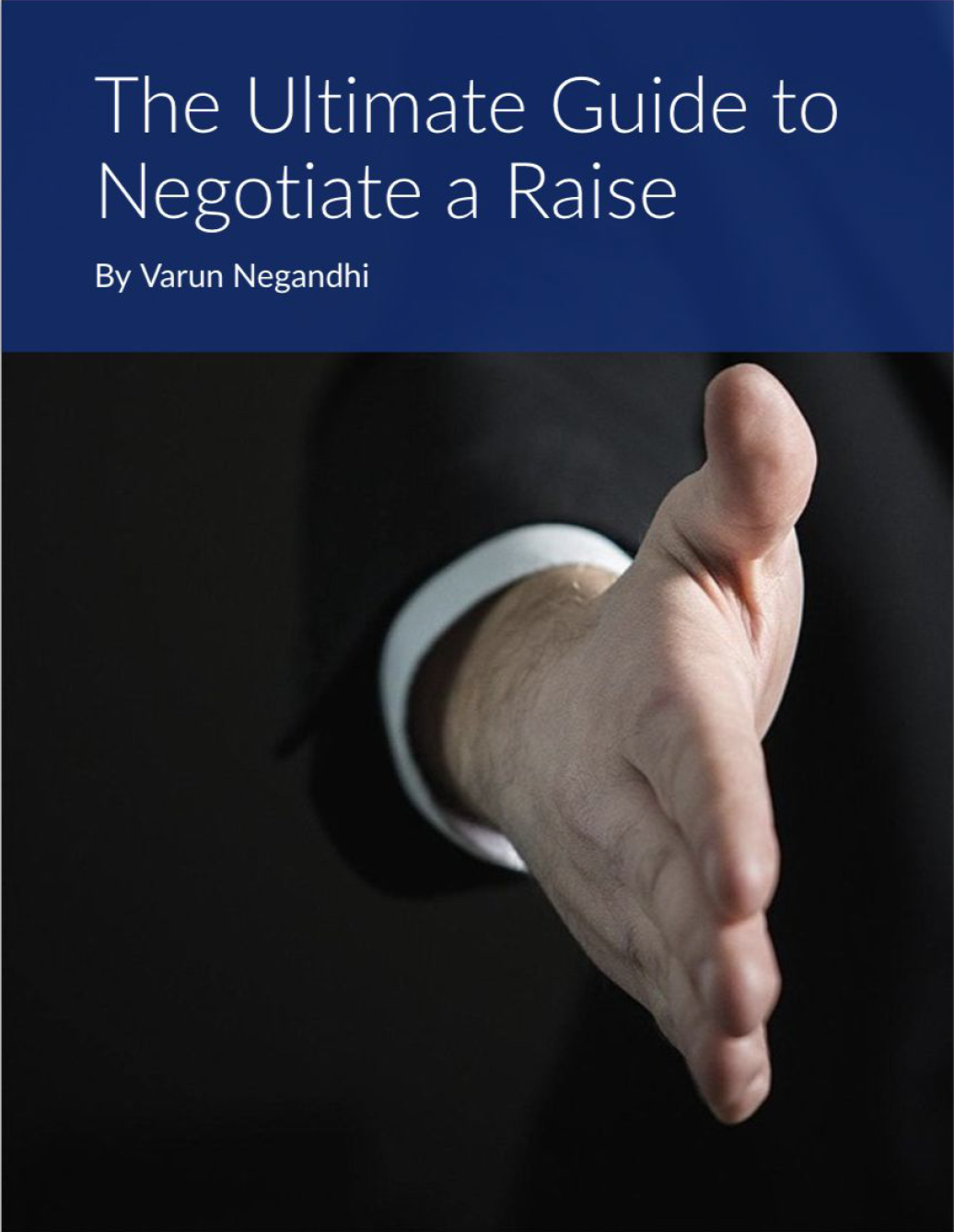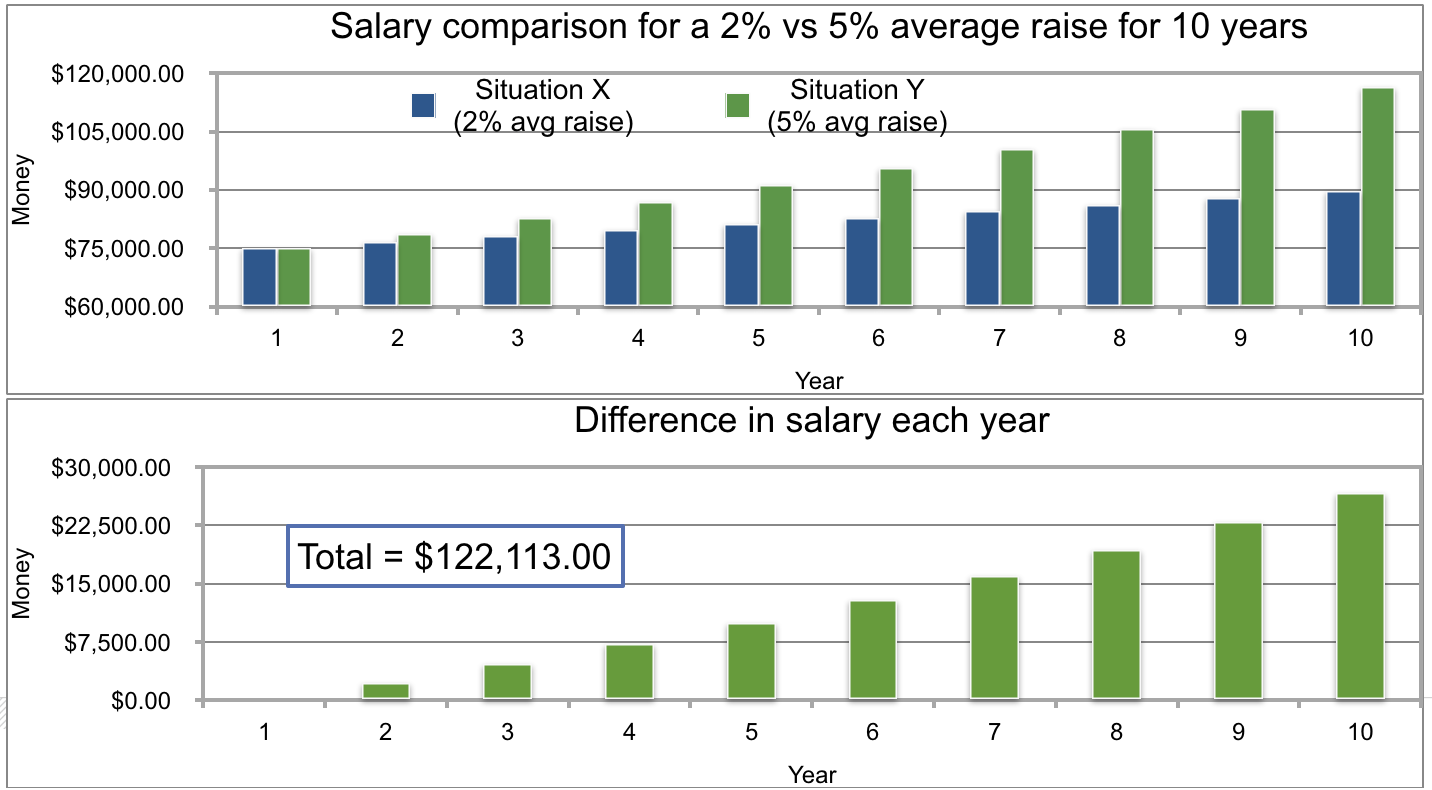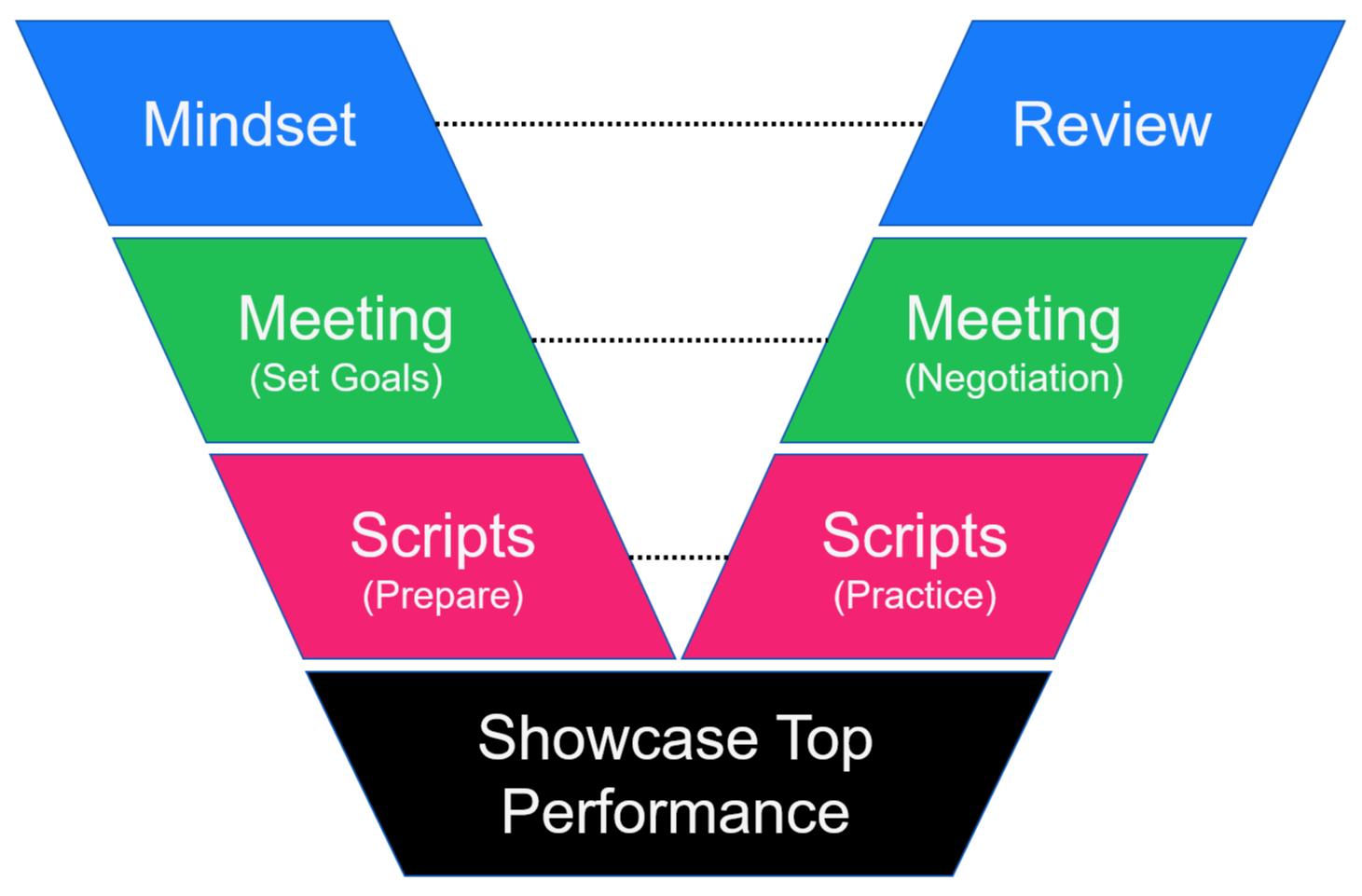The Ultimate Guide to Negotiating a Raise.
I want to start by sharing a testimonial from my boss — Brad Tillock.
He’s the CEO of EngSim, my mentor, and the person who I negotiate my raise with each year.
“Varun is a great negotiator and is always planning his performance reviews six months before. You may think that his negotiation skills are bad for my business, but on the contrary, he has been able to use the same skills to add our company a lot of value. Varun has deserved his high compensation improvements, and along with that he has strengthened the company’s revenue, reputation, and our relationship.”
I’m so grateful for this quote.

Over the last decade, I’ve been able to negotiate:
- A partnership stake in the company without financial investment. Just sweat equity.
- 10%+ raises multiple times (in the US, the average is 2.9%)
- WFH pre-COVID, flex schedule, and holidays based on my faith.
- To top it off, I can work from anywhere in the world. I've worked from India for more than 4 months a year (twice)!
I say that not just to brag, but because I’ve come a long way from paying extra to street vendors in Mumbai, to learning how to negotiate the right way.
Download the entire guide for FREE here.

Yes, I was that friend of yours who paid Rs. 1999 ($30 — a lot of money in the late 90s) for a fake Cristiano Ronaldo’s jersey.
And it cost me over $120,000 in the long run.
Let me show you how. Let’s say you have two situations — X and Y. In both cases, you start at a yearly salary of $75,000.

When I saw that number I started thinking — New Zealand vacation + Euro tour with parents + charitable donations + rest in savings = Wowza
In situation X you get a standard 2% raise each year. While in situation Y you negotiate a 5% raise on average each year. An average of 5% is achievable because one year you might get a big raise and the next one you may get the standard 2%.
If situation Y, you end up with $122,133 more!
Your starting numbers can be different, but the math will still shock you. If you invest the difference, the potential is even higher.
Think about this.
- Would you ever miss an investment opportunity that gives you a $120,000 return for $0 invested?
- Would you say no to a $120,000 saving on a house purchase?
- Would you say no if you win a $120,000 challenge?
NO WAY!
So why should you let this opportunity go?
The benefits of negotiation are not just monetary. By negotiating the right way, you get reputational and relational benefits.
Introducing the V-Negotiation System
No, I didn't name the framework after me. It is based on the V-development cycle used in the auto industry.

